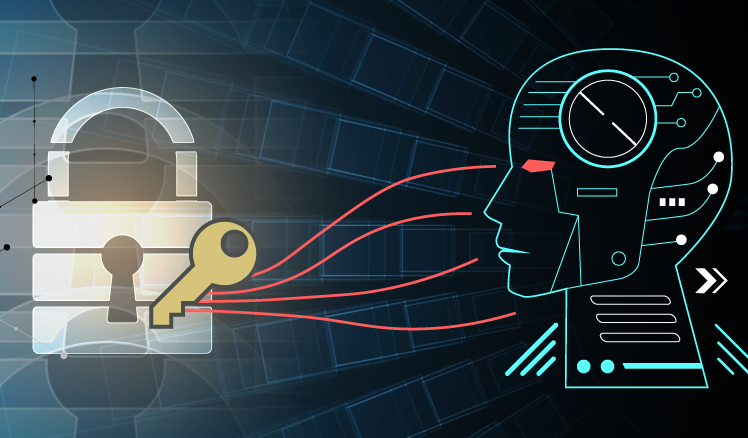
HARTFORD, Conn — With many jobs expected to eventually rely on generative artificial intelligence, governments are trying to help workers improve their tech skills before they become obsolete and outpaced by increasingly smarter machines.
Connecticut is working to create what advocates say will be the nation’s first Citizens AI Academy, a free online repository of curated lessons that users can take to learn basic skills or earn a certification needed for employment.
“This is a rapidly evolving area,” said Democratic Senator James Maroney. “So we all need to learn the best sources to stay informed. How can we update our skills? Who can be trusted sources?”
Determining what skills are needed in an AI world can be a challenge for state lawmakers, given the rapidly evolving nature of the technology and differing opinions about which approach is best.
Gregory LaBlanc, a professor of finance, strategy and law at the Haas School of Business at Berkeley Law School in California, says workers should be taught how to use and manage generative AI rather than how the technology works, in part because computers will soon be better able to perform some tasks that were once performed by humans.
“What we need is to focus on things that complement AI, rather than learning to be really bad imitators of AI,” he said. “We need to figure out what AI isn’t good at and then learn those things. And those things are generally things like creativity, empathy and high-level problem solving.”
He said that historically, people didn’t have to understand technological advances to succeed.
“When electricity came along, we didn’t tell everyone to become electrical engineers,” LeBlanc said.
This year, at least four states — Connecticut, California, Mississippi and Maryland — proposed legislation that tried to deal in some way with AI in the classroom. They ranged from Connecticut’s planned AI Academy, which was originally included in a broad-based AI regulation bill that failed but the concept is still being developed by state education officials, to proposed working groups exploring how AI can be safely incorporated into public schools. One such bill died in the Mississippi legislature, while the others are still moving.
One bill in California requires a state task force to consider including AI literacy skills in math, science, history and social science curricula.
“AI has the potential to positively impact the way we live, but only if we know how to use it and use it responsibly,” the bill’s author, Assemblymember Marc Berman, said in a statement. “Regardless of their future profession, we must ensure that all students understand the basic principles and applications of AI, have the skills to recognize when AI is being used, and are aware of the implications, limitations, and ethical considerations of AI.”
The bill is supported by the California Chamber of Commerce. CalChamber policy attorney Ronak Daylami said in a statement that incorporating information into existing school curricula will “dispel the stigma and mystique of the technology, helping students not only become more critical and purposeful users and consumers of AI, but also future generations of workers will position better. to succeed in an AI-driven workforce and hopefully inspire the next generation of computer scientists.”
The planned AI Academy in Connecticut is expected to award certificates to people who complete certain skills programs that may be necessary for their careers. But Maroney said the academy will also cover basic skills, from digital literacy to asking questions of a chatbot.
He said it is important that people have the skills to understand, evaluate and interact effectively with AI technologies. It does not matter whether it concerns a chatbot or machines that learn to identify problems and make decisions that mimic human decision-making.
“Most jobs require some form of literacy,” Maroney said. “I think if you don’t learn how to use it, you’re at a disadvantage.”
A September 2023 survey by job placement company Indeed found that all U.S. job postings on the platform included skills that could be performed or supplemented by generative AI. Nearly 20% of job postings were considered “highly exposed,” meaning the technology is considered good or excellent in 80% or more of the skills listed in Indeed job postings.
Nearly 46% of jobs on the platform were “moderately exposed,” meaning the GenAI can perform 50% to 80% of the skills.
Maroney said he worries about how this skills gap — coupled with a lack of access to high-speed internet, computers and smartphones in some underserved communities — will exacerbate the inequality problem.
A report released in February by McKinsey and Company, a global management consulting firm, predicted that generative AI could increase U.S. household wealth by nearly $500 billion by 2045, but also widen the wealth gap between black and white households by $43 billion annually.
Advocates have been working for years to close the nation’s digital skills gap, often focusing on basic computer skills and improving access to reliable internet and devices, particularly for people living in urban and rural areas. The advent of AI brings additional challenges to that task, said Marvin Venay, chief external affairs and advocacy officer for the Massachusetts-based organization Bring Tech Home.
“Education has to be involved in this for this to really take off in the public domain … in a way that gives people the ability to break down their barriers,” he said of AI. “And it has to be able to explain to the most average person why this is not just a useful tool, but why this tool is something that can be trusted.”
Tesha Tramontano-Kelly, executive director of the Connecticut-based group CfAL for Digital Inclusion, said she worries that lawmakers are “putting the cart before the horse” when it comes to talking about AI training. Ninety percent of the youth and adults who take advantage of her organization’s free digital literacy classes don’t have a computer at home.
Although Connecticut is considered technologically advanced compared to many other states and can get internet service to almost every household, a recent survey of the state’s digital stocks shows that only about three-quarters subscribe to broadband. A survey conducted as part of the study found that 47% of respondents find it somewhat or very difficult to afford internet services.
Of residents reporting a household income at or below 150% of the federal poverty level, 32% do not own a computer and 13% do not own a device with Internet access.
Tramontano-Kelly said ensuring access to the internet and the affordability of technology equipment are important first steps.
“So teaching people about AI is super important. I agree 100%,” she said. “But the conversation should also be about everything else related to AI.”
READ ALSO | Famous chef evicted from New York apartment, landlord says he hasn’t paid rent in years
NJ Burkett has the story from Brooklyn.
———-
* More news from Connecticut
* Send us a news tip
* Download the abc7NY app for the latest news
* Follow us on YouTube
Submit a tip or story idea to Eyewitness News
Do you have a breaking news tip or a story idea we should cover? Send it to Eyewitness News using the form below. If you attach a video or photo, the Terms of Use apply.
Copyright © 2024 by Associated Press. All rights reserved.




























